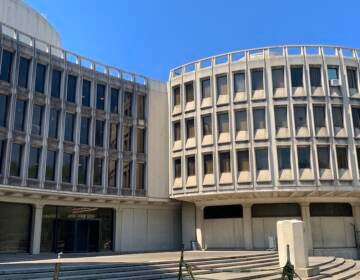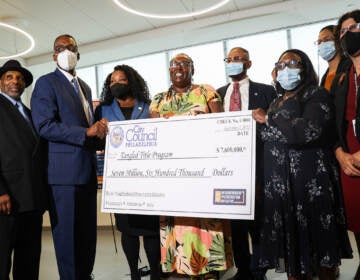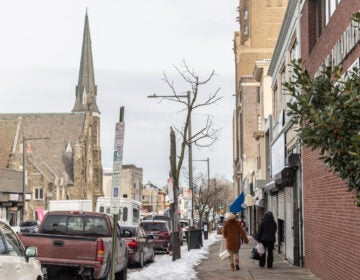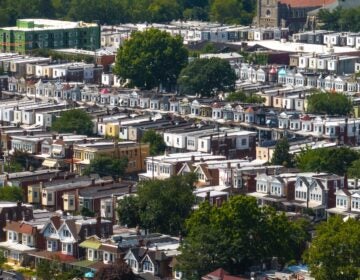Dispute with Philly City Council member stalls redevelopment of Germantown Y
A Friends group says the city broke its promise to issue a new request for proposal by the end of August, putting the redevelopment of the Germantown Y in limbo.
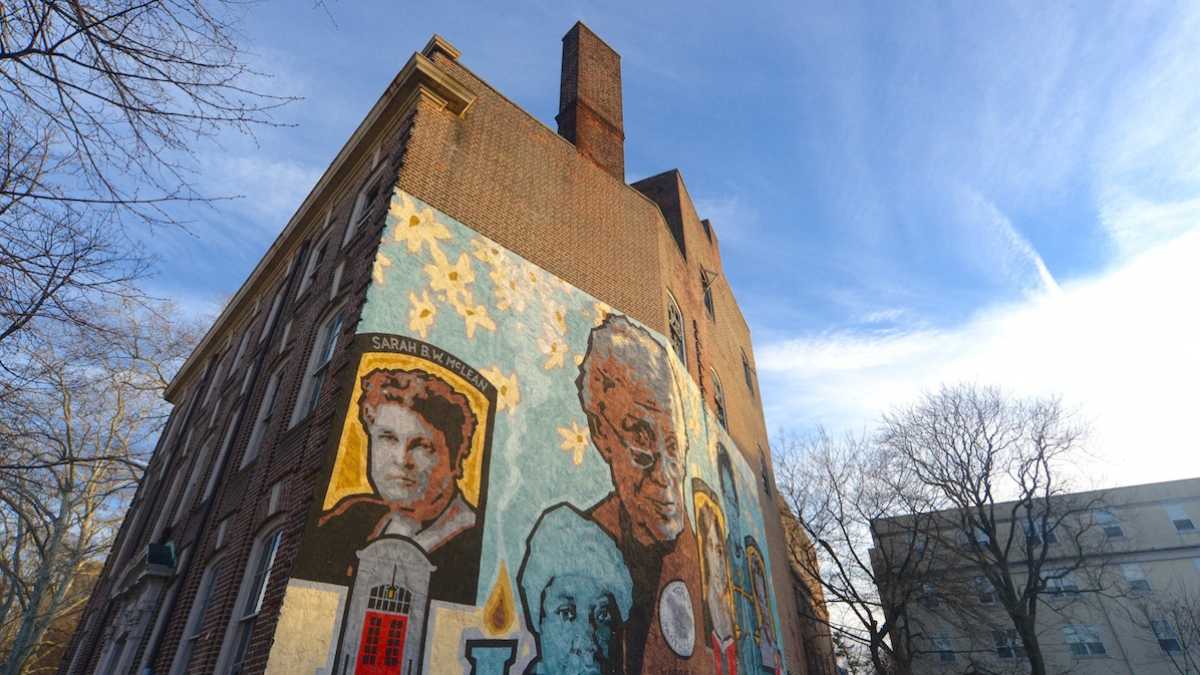
The YWCA in Germantown. (Bas Slabbers/WHYY)
A tug-of-war between a community group and City Councilmember Cindy Bass has effectively halted the redevelopment of the Germantown YWCA, a long-vacant neighborhood landmark both sides want to see transformed into a neighborhood asset.
The dispute, the latest twist in an ongoing saga, is rooted in the city’s decision last year to cut ties with KBK Enterprises, the Pittsburgh-based company selected to restore the historic and beloved building in 2016. The move came after neighbors pressured the Philadelphia Redevelopment Authority to change course because KBK had failed to show it had the financial capacity to follow through on the project.
After terminating KBK’s redevelopment contract, the authority planned to solicit a second round of bids to renovate the blighted property. Neighbors say city officials promised them in May that a new request for proposal would go out by the end of August.
“We were frankly relieved to learn months ago that it was finally taking responsibility and was going to try to end the continuing neglect and put out an RFP and move this thing along,” said Irv Acklesberg, a longtime resident and member of the Friends for the Restoration of the Germantown YWCA Building. But the relief turned out to be short-lived.
Earlier this month, David Thomas, president of the Philadelphia Housing Development Corporation, told the group the agency couldn’t move forward with the redevelopment process because it was still addressing concerns raised by Bass, according to an email exchange obtained by WHYY. What’s more, Mayor Jim Kenney’s administration said in order to proceed, the authority would need Bass’ cooperation.
Thomas said issuing a new RFP without Bass’ support would be “futile for staff and a financial burden on respondents preparing proposals,” a reference to what’s known as councilmanic prerogative. While not law, the longstanding practice effectively gives council members final say over development in their districts.
“Just as we are trying to address the concerns expressed by those representing the community (“The Friends”) we were reminded we must also balance the concerns of the Councilperson “elected” to represent the district if we truly want to get this done,” wrote Thomas.
“I acknowledge the appearance of contradiction but assure you the desire of the PRA to have this property developed has not changed,” he added.
PRA spokesperson Jamila Davis said the authority had hoped to release the new RFP by the end of summer, but did not commit to a specific date.
KBK, which would be eligible to submit a second bid, did not immediately respond to a request for comment.
Bass’ concerns about the redevelopment process, raised publicly during a contentious community meeting held in January, are myriad. All of them stem from the city’s decision to remove KBK, a political backer of hers, from the project.
The councilmember has claimed the city discriminated against KBK, a Black-owned company. She has also said the redevelopment authority falsely told the developer that the project required historical tax credits to be completed, and that KBK never had proper access to the site, claims the authority disputes.
“We’re trying to penalize a developer for something they have no control over, and that’s actually site control. How do you get funding for something you don’t own?” Bass said this week.
She said KBK’s proposal — to convert the property into two dozen apartments with retail and commercial space on the ground floor — is “still on the table and is still very much in dispute.”
KBK was slated to complete the project in 2019. Now the future of the Germantown YWCA is again uncertain.
To Acklesberg, that’s beyond frustrating, especially considering the city’s history with the building. Nearly two decades ago, the PRA foreclosed on the property when its last owner, Germantown Settlement, failed to repay a $1.3 million loan the authority issued the nonprofit to turn the building into a community center.
Settlement was insolvent when the city issued the loan and later filed for bankruptcy due to financial mismanagement of millions in taxpayer dollars.
“It’s like part of the soul of Germantown that building,” said Acklesberg. “We call on the PRA to fix this mess.”

Subscribe to PlanPhilly
WHYY is your source for fact-based, in-depth journalism and information. As a nonprofit organization, we rely on financial support from readers like you. Please give today.




